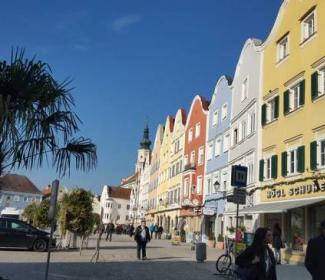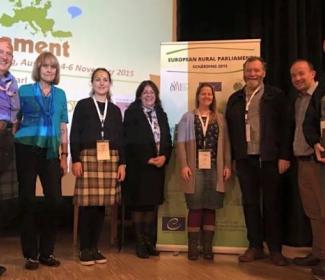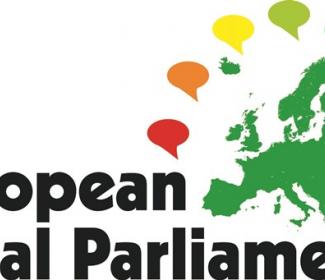Sarah Hyslop reports on Swedish Rural Parliament

Sarah Hyslop, Ayrshire LEADER Programme Manager, shares her experiences and reflections from the recent Swedish Rural Parliament event which took place in Visby, Gotland, Sweden from 27 to 29 May 2016.
What was the event about and why did you attend?
‘For a country in balance’ was the theme for the 2016 Swedish Rural Parliament held in Visby, Gotland. The event aimed to stimulate thought and discussions on what was needed in order to figure out what a country in balance really means and how it might look.
With in excess of 600 delegates from across Europe representing the village action movement, member organisations, international guests, government, politicians and press there were plenty of opportunities to exchange ideas as well as experiencing best practice of activity taking place in rural areas in Gotland.
I visited five examples of tourism projects which have had to adapt to the fluctuation of visitors/customers during the seasons on Gotland to ensure their businesses could be financially stable and viable all year round.
Just north of Visby is Krusmyntagården, a go-to destination for anyone visiting Gotland. The herb garden, shop and restaurant opened in 1981 and have a staff of approximately 40 during the summer season. There is a beautiful dining area where you can enjoy locally sourced food and drink. In addition, there is a charming shop that sells locally produced chutneys, spice blends, skin care, jams, pesto, marmalades, herb oils, soaps, saffron biscuits, honeys and mustards. The business is open May through September and admission is free. In order to ensure that they can maintain business throughout the closed months (October-April) they have developed a large network of suppliers for their produce locally as well as the mainland and have developed a website where local and overseas customers can order products online.
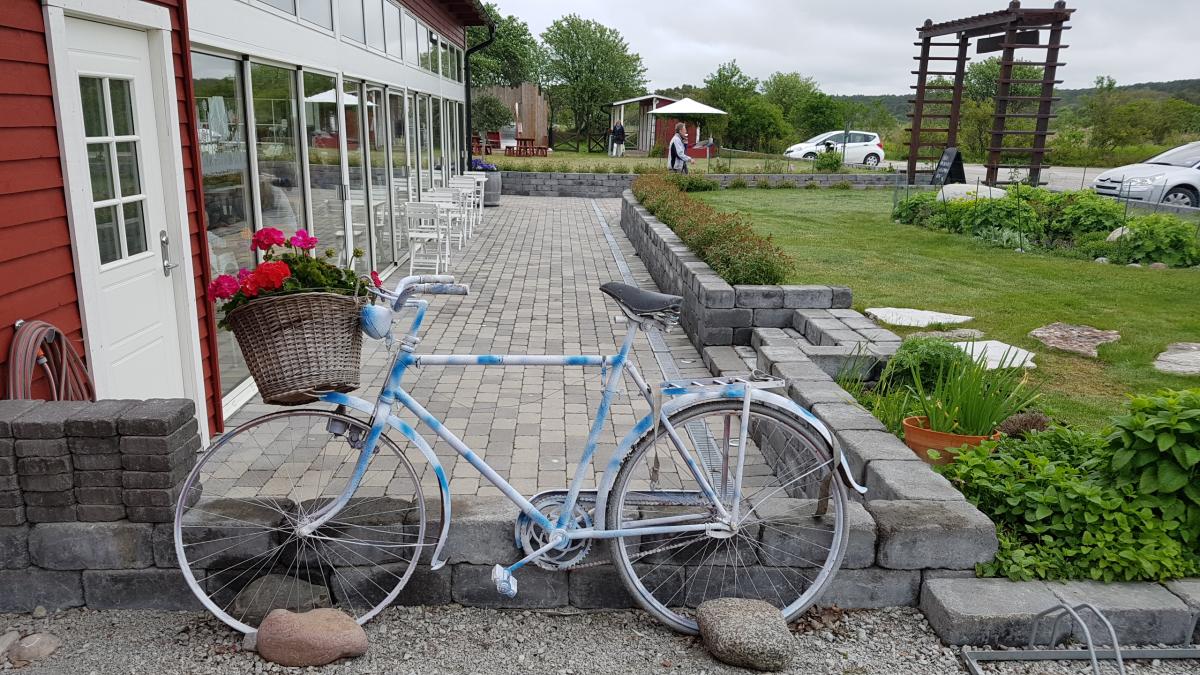
Next stop was Tjaulsgard a farm diversification initiative run by Berra Marcusson and Ulrika Pettersson who have combined their personal interests for motorbikes, horses and adventures on their large farm. They provide a high-end hotel in the main farmhouse suitable for private or corporate guests. They arrange parties, events, conferences and fun weekends offering a range of dynamic activities on the farm including Gotlandic games, chocolate testing, bonfires by the sea, biking, motorcycle tours, horse-riding and guided tours of the island. They have a large party barn which is used for conferences and parties.
We then visited Tempo Stenkyrka. We heard from Micke the owner who has developed the business based on local requirements. By retailing petrol and diesel he can offer a much-needed service to locals and tourists including a large number of motorcyclists who tour the island. In addition, by providing a local bank service, both businesses and local residents have benefitted. Moving west on the Island, we visited Lampfabriken in Halvgrupp, where Jane Odell and Jonas Kilng design and manufacture lighting, hand printed textiles and leather goods. They took time to tell us about how they attract tourists by opening the business for people to visit the small retail shop where work is displayed and visitors can buy items.
We then walked across the road and visited Gotland Delikatesser, a rural enterprise run by Ludwig Balassa and Arla Lothberg. They have a strong brand and ethos creating delicious pesto and chutneys using Swedish wild garlic called Ramslok, free growing Gotland salmbars (a local fruit similar to a blackberry) and local apples amongst other local high quality ingredients. Everything is hand-made from their on-site kitchen and the deli has a small display area, shop (with tasting table). The deli supplies to approximately 40 locations in Gotland and supplies to Stockholm and other locations across Sweden.
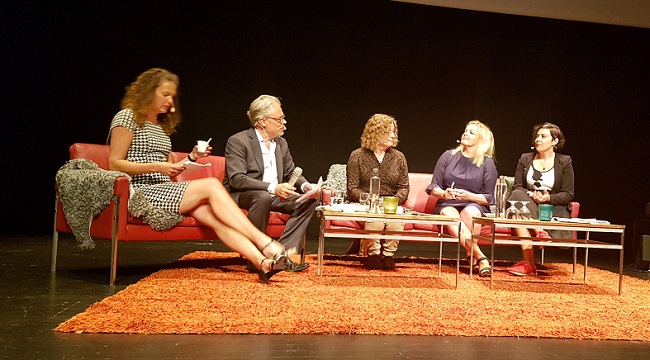
Tell us what you hoped to get from the event
I hoped to learn more about local enterprise initiatives related to local produce, farm diversification and to learn more about how the Swedish Rural Parliament is supporting rural communities to develop and overcome challenges they face in the current economic climate.
What were the key points that you took from the event?
There is a wide diversity of areas and people in rural Europe sharing common values who are resilient and innovative in overcoming challenges faced. Challenges include marginalisation from urban areas and ‘centres of power’ i.e. the cities where the Government offices are based.
The refugee crisis requires immediate and sustained action and there is a belief that many rural areas and particularly those with declining populations offer an opportunity to integrate refugees and other newcomers. This integration needs to include job creation, investment in housing, service and infrastructure and successful integration should be celebrated.
What was the best thing about the event?
The part I most enjoyed were the field trips to the rural businesses to hear how they have developed and adapted their businesses.
I made new connections with a range of rural animators and project leaders as well as networking with a number of delegates in a more informal basis.
Is there anything you will do as a result of attending the event?
Yes, I will be making contact with project leaders to follow up on projects I learned about. In addition, having experienced a Rural Parliament event first-hand, I will offer support to Angus as they prepare for the Scottish Rural Parliament to be held in Brechin in October 2016.
Where can we find out more?
- http://gotlandsdelikatesser.se
- http://www.tjauls.se
- http://www.krusmynta.se
- http://www.helasverige.se/kansli/in-english
- http://gotland.com/en
- http://www.visbysweden.com
More about the Scottish Rural Parliament
The second Scottish Rural Parliament takes place in Brechin, Angus from 6-8 October. Visit the Scottish Rural Parliament website to find out more. The first Scottish Rural Parliament took place in Oban in 2014. You can watch a video from the event below:
Scottish Rural Parliament 2014 from Scottish Rural Parliament on Vimeo.



